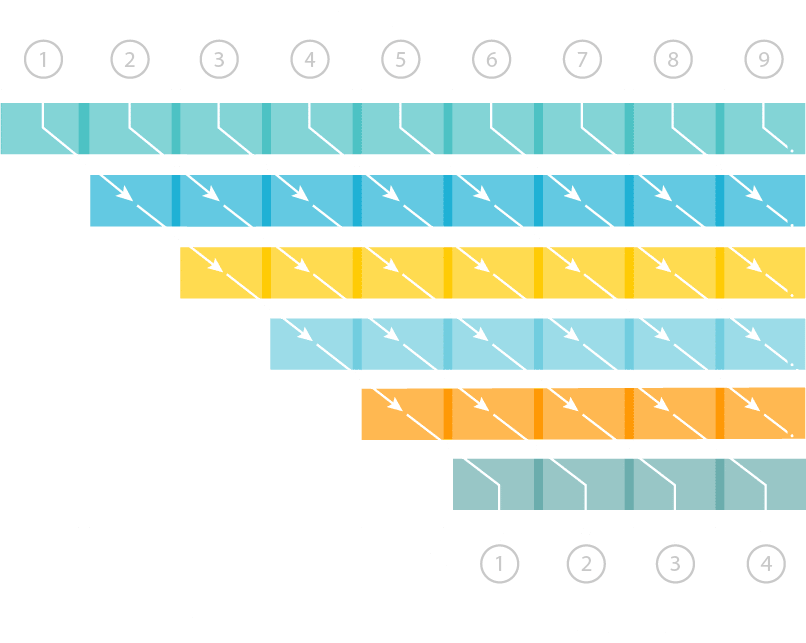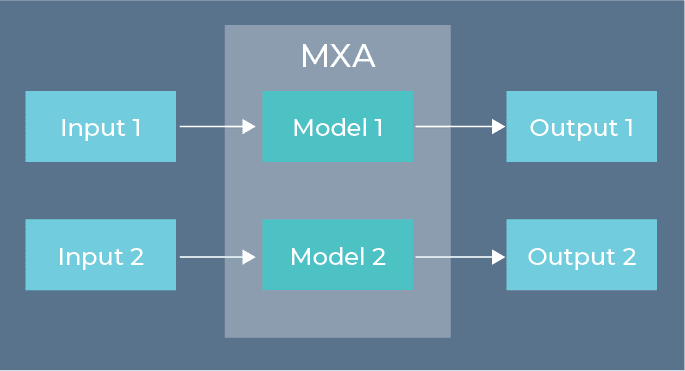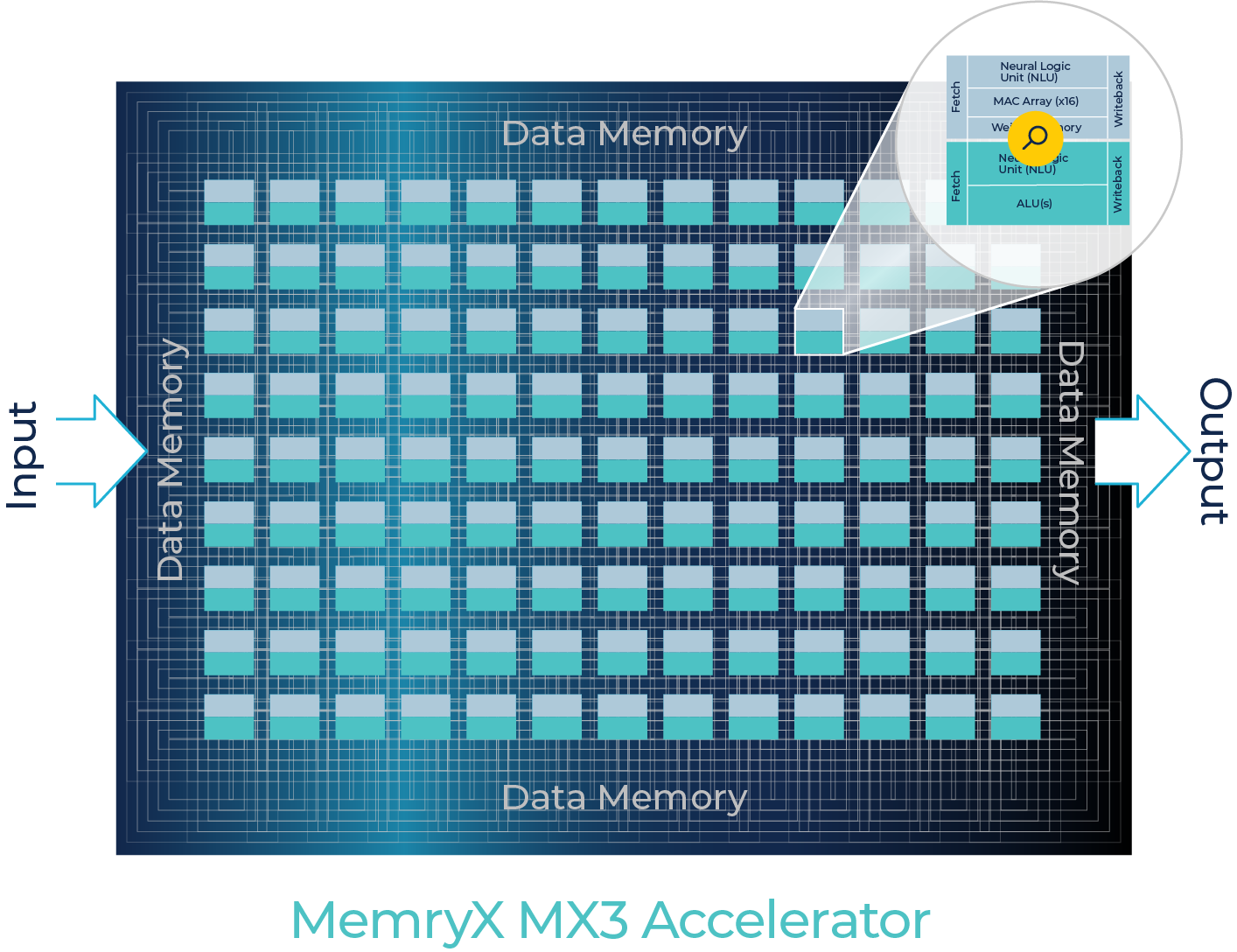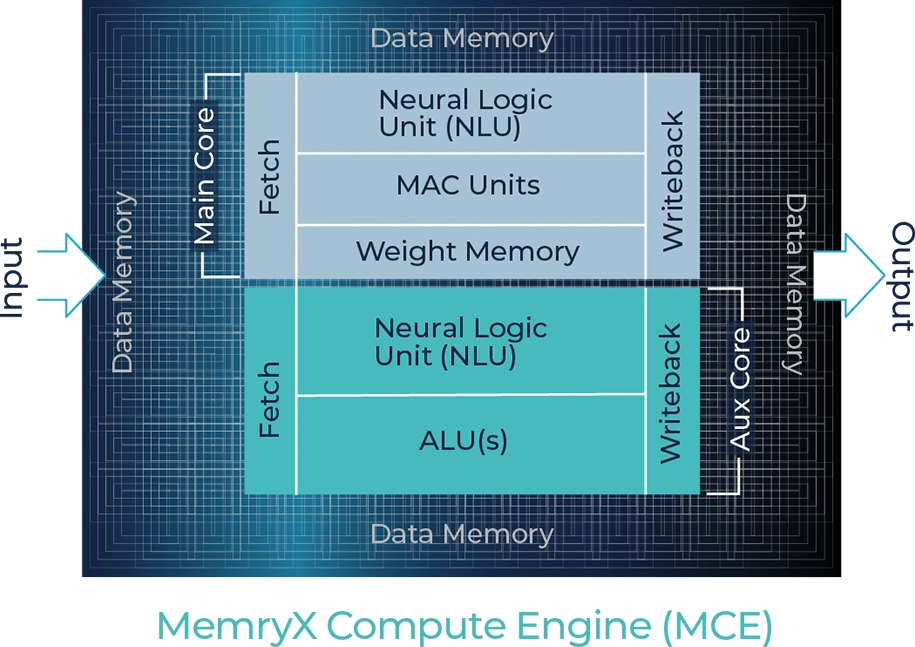Forward Looking Architecture
Chip makers are always making design tradeoffs to balance performance, power, area, cost, quality, size, thermals, compatibility, efficiency, ease of use, and more.
But exceptional developers look beyond a chip spec sheet to the core architecture.
Core architecture is what sets MemryX solutions apart from competing AI alternatives. The hardware and software architectures were co-designed from the ground up, constrained not by spec sheet requirements, but by customer-friendly features such as maximizing HW/SW scalability, ease of implementation, compatibility to extend the AI processing of any Application Processor, and the flexibility to accommodate unknown future design requirements.
Add Advanced AI to any Host Processor

Adding memory capacity to any processor is easy. Our goal at MemryX is to make scaling AI processing nearly as simple.
MemryX chip(s) connect to standard I/O (USB or PCIe) for data input. They execute in a deterministic manner while not adding any processing burden to the host (on any OS), no matter how many chips are connected.
Purpose-Design for Advanced AI
MemryX uses a proprietary, highly configurable native dataflow architecture.
MemryX Compute Engine (MCE) are tightly coupled with innovative at-memory computing for superior AI processing at the Edge.
Unlike other solutions that rely on control planes or network-on-chips (NOCs) to manage complex data routing, MemryX’s native dataflow design achieves deterministic, high performance/utilization, low latency, and ease of mapping.
High Utilization
MemryX uses a proprietary dataflow architecture with at-memory computing specifically designed for efficient compilation and mapping of trained AI models.

1-Click Optimization
Example:
Mapping a Neural Network with 6 Layers


Pipelined Execution for
High Performance / Low Latency
- Deterministic performance for each frame with no system bottlenecks
- All processing done with batch = 1 for real-time, streaming processing
- Faster processing and lower latency by adding AI Processing Chips (e.g. double the “pipe” by adding double the AI processors)


AI Optimized Dataflow Pipeline with Multiple Model (Each can run fully independent and Asynchronous)

